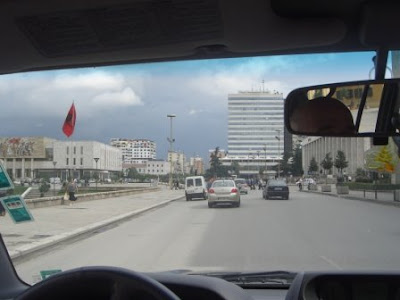(english version below)
Après un été de pause, le blog recommence! Pour l'instant les enregistrements sont aussi en pause à cause d'un emploi du temps trop chargé (concerts, camps, mariages...). Comme je ne peux y travailler que les week-end, ça restreint pas mal le temps.
C'est très très frustrant. Mais ça a un avantage: c'est comme un pudding de Noël - plus c'est vieux plus c'est bon. Si, si. Donc le temps permet d'affiner la chose. L'été m'a permis de laisser le projet s'affiner dans ma tête, et ça m'a donné des idées.
La première chose, c'est que le CD va changer d'orientation. J'aime penser les chansons d'un album comme un tout lié par un fil rouge. J'avais pensé l'appeler "Parabolic", parce que la plupart des chansons racontent des histoires que l'on peut comprendre de plusieurs façons. Mais je me suis rendu compte qu'il y avait un autre fil rouge bien plus évident. Toutes mes chansons parlent des liens, des relations, de l'amitié, de la solitude. En prenant du recul, c'est un thème bien plus cohérent avec les réflexions qui ont mené à ces chants.
Conséquence, des chansons sortent du projet et d'autres y rentrent. Je ne pensais pas y mettre ma nouvelle chanson, que j'ai renommé "Tout cela pour...", mais la réflexion sur le lien et la solitude en font naturellement le titre phare du CD. La pierre rejetée devient la principale :) .
Deuxièmement, et troisièmement, et…bref, l'affinage du CD a donné naissance à d'autres idées...des bonus...Mais je n'en dis pas plus pour l'instant. Il faut bien entretenir un certain suspense – et je veux être sûr que ça va se réaliser avant d’en parler.
Bref, plein d'idées la tête. Je me réjouis d'avance de m'y remettre!
OoooooooooooO
After the summer pause, the blog is back ! Recording are in standby because of an overloaded schedule (concerts, youth meetings…). Given I can work on the CD only in week-ends, my available time is short.
It is very frustrating. But it has its good side: it’s like a Christmas pudding – the older the better. No kidding. Time allows to mature things. The summer break gave me time to think about the project, and some ideas came up.
First, the CD’s direction changes. I like to think of an album as whole, and songs are linked to each other by a common theme. At first I thought I would call it “Parabolic” because most songs tell stories that can be understood in different ways. But considering all the songs, I realised there was a more obvious theme. All these songs talk about links, bonds, relationships, friendships, and loneliness. Taking a step back, this theme corresponds a lot better to the thoughts that led to the composing of these songs.
As a consequence, some songs leave the project and some others come into it. At first I did not plan to add my new song (“All of this for…”) to the album, but the reflections about relationships and loneliness naturally pushed it to become the main title of the CD. “The rejected stone became the main one”
Secondly, and thirdly, and…well, the maturing of the CD gave birth to other ideas…bonuses…I don’t tell more for the moment. Here must be a reasonable amount of suspense – and I want to be sure these idea will come true before talking about them.
In short, there are plenty of ideas in the head. I am looking forward to recording again!
























